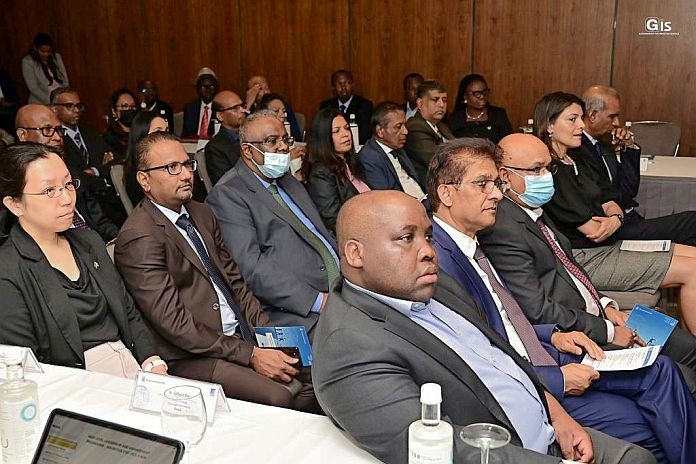LONDON, England – The Commonwealth Secretariat considers corruption a major challenge to sustainable development and has made preventing and countering corruption a top priority by supporting member countries combat systemic corruption and promote good governance. We do this through a three-pronged approach based on policy research, capacity-building and training, and strong collaboration.
In Africa, an estimated $50 billion a year is lost through illicit flows, this is equivalent to the entire annual official development assistance (ODA) for the continent. The time for action against corruption has never been more urgent.
Last month, the Commonwealth Secretariat in collaboration with the Mauritius Independent Commission Against Corruption (ICAC) convened a high-level leadership and management workshop with Heads of Anti-Corruption Agencies from Africa. The workshop aimed to equip participants with the skills to successfully lead anti-corruption agencies and mitigate corruption both within the organisation and externally.
The workshop, which took place in Mauritius from 31 October to 4 November, was officially opened by the chief government whip, Naveena Ramyad, and the ICAC director-general, Dr Navin Beekarry. Seventeen anti-corruption agencies, including new members Gabon and Togo, took part in the workshop to share best practices and highlight regional and national challenges.
“It is important now, more than ever, that heads of institutions fighting corruption are kept abreast with current and effective skills and knowledge to effectively lead and manage their resources for the fight against corruption.
The Commonwealth Secretariat understands the importance of capacity-building as a critical element in developing human capital in public service, particularly, in institutions that are at the forefront of fighting corruption. That is why the Commonwealth Secretariat has always responded positively and favourably to Anti-Corruption Agencies’ need for capacity-building programmes. We view increased access to learning and development opportunities as critical to creating more agile, resilient, and responsive anti-corruption institutions.”
During the workshop, Dr Navin Beekarry highlighted the importance of combating anti-corruption to help achieve the United Nations Sustainable Development Goal 16, which is geared towards promoting peaceful and inclusive societies for sustainable development, providing access to justice for all and building effective, accountable, and inclusive institutions at all levels. “Strong leadership, training and enhanced collaboration are integral to the functioning of anti-corruption agencies,” he said.
The Commonwealth united against corruption
This workshop comes six months after the Secretariat’s landmark regional conferences for heads of anti-corruption agencies in Africa and the Caribbean. At these conferences, delegates called for the strengthening of international and regional collaboration among anti-corruption agencies to help address the gaps in fighting corruption.
The Secretariat has also held successful workshops in Lesotho, Zambia, Rwanda, South Africa, Botswana, Eswatini, and Trinidad and Tobago.
A global problem
Corruption is a global problem that requires global solutions and the Commonwealth Secretariat is committed to supporting member countries in fighting corruption and mitigating its effects. Some of the Secretariat’s achievements in anti-corruption work range from the adoption of investigations for the successful prosecution of financial crimes, to the development of strategic plans for Anti-Corruption Agencies, and amendments to members’ Anti-Corruption Acts.
Last year, the Secretariat launched a landmark set of measures to support international efforts in tackling corruption. The Commonwealth Anti-Corruption Benchmarks are recommended as good practice anti-corruption measures that help governments and public sector organisations to assess their anti-corruption laws, regulations, policies and procedures against international good practice, national governments and public sector bodies.
Other recent resources from the Secretariat include Combatting Corruption in the Commonwealth Caribbean and Tackling Corruption in Commonwealth Africa. These publications highlight the success stories of five countries in these regions that have made significant progress in combatting corruption and the factors that have enabled successful anti-corruption strategies.







